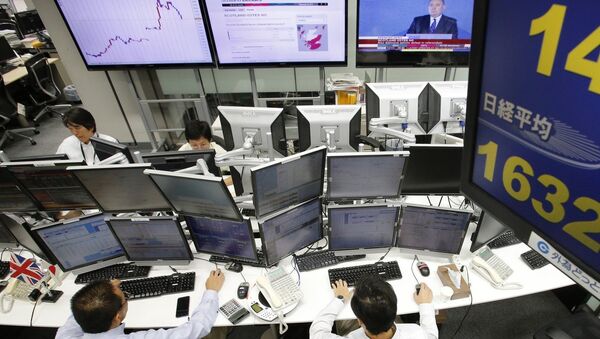Mainland China’s markets expanded as investors were encouraged by the recent speculation that Beijing is planning to introduce more stimulus to spur the faltering economy. Shanghai Composites rose 2.8%, extending yesterday’s record gains driven by real estate. MSCI Asia Pacific Index added 0.3%, possibly ending in the green zone its first week since November. Today, gains in mainland markets were driven by financial sector enterprises, with the most prominent examples being Bank of Communications and China Life Insurance, adding 3% respectively.
“The PBOC’s plan to waive a requirement for lenders has a similar impact to cutting of reserve ratio requirement,” Sam Hsieh of the Fuh Hwa Securities Investment Trust in Taipei told Bloomberg.
“The market is starting to imagine there might be more easing, and that is leading to yen selling,” Yuji Saito of Credit Agricole in Tokyo told Bloomberg.
Japanese stocks surged, as a weaker yen is likely to aid big exporters and prompt another wave of BoJ easing. Nikkei closed 0.1% higher today, having risen 1.1% this week amidst its lowest trading volumes since May, according to Reuters. Leading the gains were Fanuc Corp, edging 0.4% up. One of the zaibatsu, Sumitomo Mitsui Financial Group, surged 0.9% after yesterday’s announcement that it will purchase Citi’s local consumer-lending branch. The broader Topix Index of Japanese stocks rose 0.4%.
"Normally, positive stockpile data of this magnitude would surely have broken support levels. However, it seems there is not enough downward pressure to keep prices down," Singapore-based Phillip Futures said.
In other commodities markets, gold rose 1.10% to $1.186.40/t oz., platinum added 1.34% to $1.208/t oz. As the year-end approaches, non-US exporters are selling the dollar as they are mostly paying taxes in local currencies.






